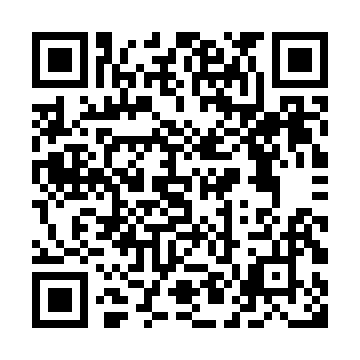加拿大學生簽證新法規
CIC加拿大移民局新政策2014年6月開始囉!
加拿大學生簽證新法規
Changes to the International Student Program
- limit the issuance of study permits to applicants who will be studying at a designated learning institution, including institutions that are designated by provinces and territories on the basis of meeting minimum standards;
- require students to actively pursue their studies while in Canada; and
- allow full-time international students enrolled at designated institutions in certain programs to work part time off campus and full time during scheduled school breaks without a work permit.
Read the full text of the new regulations.
Designated Learning Institution List 合格學校名單:
https://www.cic.gc.ca/english/study/study-institutions-list.asp
網頁出處: 加拿大移民局官網
——————————————————————————————————-
Studying while in Canada
As of June 1, 2014, all study permit holders in Canada will need to actively pursue studies. This means that:
- if you hold a study permit, you must remain enrolled and make reasonable and timely progress towards completing your program; and
- failing to do so could lead to your removal from Canada.
Your educational institution will report to CIC on your continued enrolment and academic status. You may also be asked by an immigration officer to provide evidence of your continued enrolment and academic status.
If you are no longer a student but wish to remain in Canada as a visitor, please see Visit Canada.
Note: Under the new rules, your study permit will become invalid 90 days after you have completed your study program. If you switch to a shorter-term program or finish your studies early, your study permit will expire 90 days after your study program has been completed. Your program is considered complete when you receive written notification of program completion (for example, a transcript or an official letter) from your institution or once you obtain your degree, diploma or certificate. This does not apply to you if your study permit application was received before June 1, 2014, or if you were issued a study permit before June 1, 2014.
To apply for a post-graduation work permit, please see Stay in Canada after graduation.
Attending a designated learning institution
To apply for a study permit on or after June 1, 2014, you will need to have a letter of acceptance from a designated learning institution.
- Each province and territory in Canada is responsible for designating schools at the post-secondary level that may enrol international students on or after June 1.
- A list of designated learning institutions at the post-secondary level will be available on the CIC website by June 1, 2014.
- If your study permit application is received on or after June 1 and your letter of acceptance is from an institution that is not designated for international students, your application will be refused.
- All primary and secondary institutions in Canada are automatically designated but will notappear on the designated learning institution list. If you are applying for your child to study in Canada at the primary or secondary level, please see Get a study permit.
If your application for a study permit is received before June 1, 2014, and your letter of acceptance is from an institution that is not designated for international students:
- your application will be processed and you may still pursue your program of study at that institution for the duration of your study permit; and
- you will be able to renew your study permit in order to complete your program, but not beyond June 1, 2017.
If you were issued a study permit before June 1 and are studying at an institution that is not designated for international students:
- you will be able to pursue the program of study that you are enrolled in for the duration of your current permit; and
- you will be able to renew your study permit in order to complete your program, but not beyond June 1, 2017.
If the institution you are studying at loses its status as a designated learning institution after you have already been issued a study permit:
- you will be able to pursue the program of study that you are enrolled in for the duration of your current permit; and
- you will be able to renew your study permit in order to complete your program, but not beyond June 1, 2017.
Applying for a study permit on or after June 1, 2014
To apply for a study permit on or after June 1, 2014, you will need to identify the institution by itsdesignated learning institution number on the application form. This number can be found on the designated learning institution list, which will be published on the CIC website by June 1, 2014.
You must also meet the standard eligibility criteria for a study permit.
You must prove that you have enough money to pay for your:
- tuition fees;
- living expenses for yourself and any family members who come with you to Canada; and
- return transportation for yourself and any family members who come with you to Canada.
You must be a law-abiding citizen with no criminal record and not be a risk to the security of Canada. You may have to provide a police certificate.
You must be in good health and willing to undergo a medical examination, if necessary.
You must satisfy an immigration officer that you will leave Canada at the end of your authorized stay.
Changing institutions: your responsibility
If you apply for a study permit on or after June 1, 2014, you must notify CIC via your MyCIC account when you are transferring from one designated learning institution to another, even if it is at the same level of study.
If you are thinking about changing your institution or your program, you need to ensure that you continue to meet the conditions of your study permit, as well as the conditions that allow you to work, should you wish to work during your studies.
Working off campus
New rules that take effect on June 1, 2014, make it easier for study permit holders to work off campus. Full-time students pursuing an academic, professional or vocational training program at adesignated learning institution will be:
- eligible to work off campus without a work permit;
- allowed to work off campus for up to 20 hours per week during a regular academic session and full time during regularly scheduled breaks; and
- able to work off campus immediately rather than waiting six months.
To be able to work in Canada, however, you must be registered and enrolled at your designated learning institution, and you must get a Social Insurance Number from Service Canada.
On June 1, 2014, if you hold a study permit and a work permit under the Off-Campus Work Permit Program, you may continue to work off campus under your existing Off-Campus Work Permit.
On June 1, 2014, if you hold a study permit and you have applied for but not yet received your Off-Campus Work Permit, you should wait for your work permit application to be processed and begin working off campus once you have received your Off-Campus Work Permit.
On June 1, 2014, if you hold a study permit but you have not yet applied for an Off-Campus Work Permit, you are authorized to work off campus without a work permit as long as you meet the eligibility requirements for working off campus.
If you apply for a study permit on or after June 1, 2014, the conditions relating to your eligibility to work off-campus will be written on your study permit.
In all scenarios, you must continue to meet the conditions of your study permit in order to remain eligible for off-campus work. If you are studying English or French as a second language (ESL/FSL), or participating in general interest or preparatory courses, you will not be eligible to work during your studies, unless you become eligible to apply for a work permit with a positive Labour Market Opinionfrom Employment and Social Development Canada.
It is your responsibility and your employer’s responsibility to ensure that you are eligible to work off campus without a work permit before you begin working. If you begin working off campus without meeting the eligibility requirements, you may be subject to enforcement action under the Immigration and Refugee Protection Regulations.
Work as part of a co-op/internship program
New rules may affect your eligibility to work as part of a co-op or internship program:
- Starting June 1, 2014, you will be able to work as part of a co-op or internship program only if the work is an essential part of an academic, vocational or professional training program offered by a designated learning institution.
- To work as part of a co-op/internship program, you will need a co-op work permit that is separate from your study permit.
- If you are studying English or French as a second language (ESL/FSL), or participating in general interest or preparatory courses, you will not be eligible to work during your studies, unless you become eligible to apply for a work permit with a positive Labour Market Opinionfrom Employment and Social Development Canada.
On June 1, 2014, if you already have a co-op work permit and are not studying at a designated learning institution, you will be able to:
- work for the duration of your current permit; and
- renew your co-op work permit in order to complete your program, but not beyond June 1, 2017.
On June 1, 2014, if you already have a co-op work permit and are enrolled in a program that does not qualify as an academic, vocational or professional training program, you will be able to:
- work for the duration of your current permit; and
- renew your co-op work permit in order to complete your program, but not beyond June 1, 2017.
If your application for a co-op work permit is received before June 1, 2014, you do not need to be enrolled in an academic, vocational or professional training program offered by a designated learning institution to receive the work permit. You may also renew your co-op work permit in order to complete your program, but not beyond June 1, 2017.
Applying for a study permit from within Canada
If you are in Canada as a visitor and wish to apply for a study permit to attend a designated learning institution, you may be able to do so from within Canada. As of June 1, 2014, certain foreign nationals may apply for and receive a study permit from within Canada. These include:
- minor children studying at the primary or secondary level;
- exchange or visiting students; and
- students who have completed a short-term course or program of study that is a condition for acceptance at a designated institution.
For more information on applying for a study permit from within Canada, please see Get a study permit.
*************************************
茱莉安留遊學: 台北 新竹 台中 高雄 花蓮 加拿大
諮詢專線: 02-2370-2012 / 1-647-885-3078
info@julianne-studio.com
FB粉絲團: 茱莉安留遊學顧問
LINE(茱莉安工作室): @juliannestudio
LINE(茱莉安本人): juliannecanada
如果有任何疑問,歡迎隨時來電或來信諮詢啦! ^^








 歡迎加入諮詢
歡迎加入諮詢